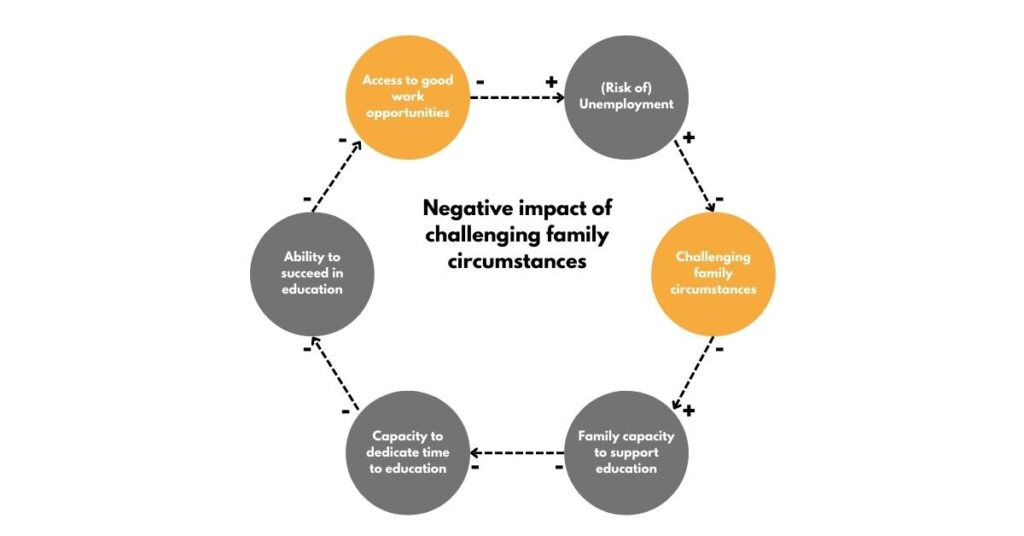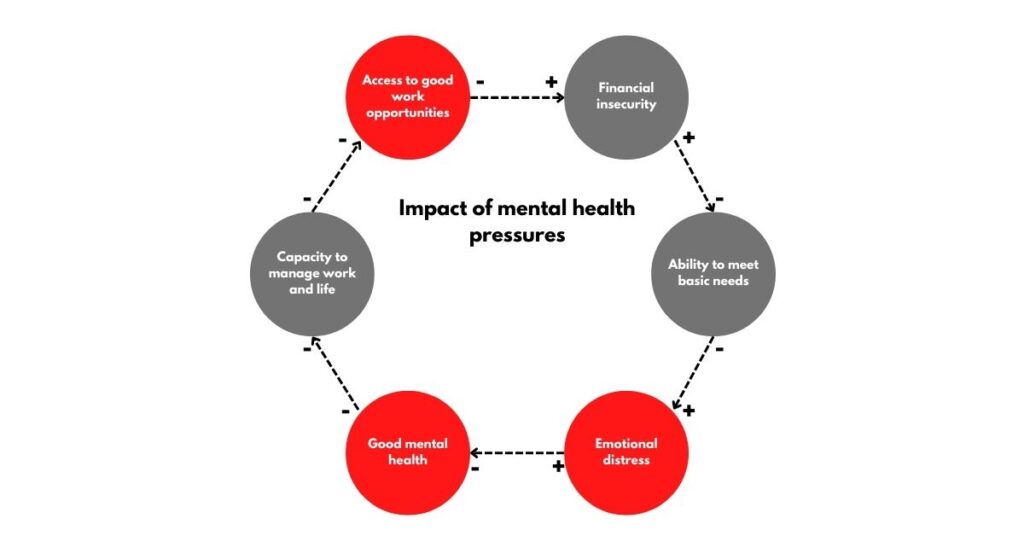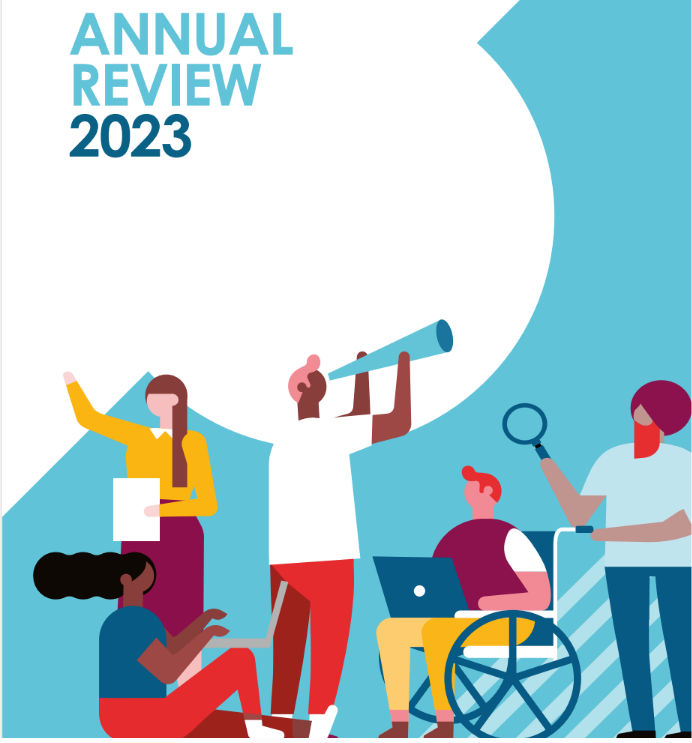Our Strategy Manager, Ryan Howsham, explores why the cost-of-living crisis risks further locking young people facing the greatest disadvantages in the labour market, out of opportunities to access good work.
Despite positive signs, too many young people remain pushed out of the labour market. Recent Youth Futures Foundation analysis shows that long-term unemployment remains higher than it was before the pandemic for young people aged 18-24, with data showing that one in ten young people are not in education, unemployment or training (NEET).
The cost-of-living crisis gives us all cause for concern. It risks making it even harder for those young people to overcome barriers that they face getting into, and keeping, good work. Some of the risks posed by the crisis for young people who are already marginalized were recently examined by our Future Voices Group in one of their peer-led meetings.
In 2021, Youth Futures published a first-of-its-kind interactive map of the youth employment system in England. The system map is built from the perspective of young people from particular marginalized backgrounds, as they try to navigate the journey from education to work.
It helps to illuminate the limiting and influential dynamics in the system that make it difficult for many young people to progress into good work and keep it. One of the most pervasive themes that was repeatedly raised, was the impact of poverty on young people’s longer-term employment prospects. Below, I explore the challenges the crisis causes for young people as discussed by our Future Voices Group.
“Having to make ends meet, takes away the luxury of finding jobs that will help you more directly [to progress into good work]” – Future Voices Group member, May 2022
Young people have shared with us that the pressures caused by poverty limit their ability to access opportunities to learn and train, and ultimately get into good work – as part of a vicious cycle that keeps them stuck in poverty, by virtue of a higher risk of and exposure to unemployment. As the crisis makes it harder for everyone to meet their basic needs, this risks locking young people into a cycle of low-quality work and unemployment, as immediate pressures stop them from taking positive steps towards sustainable future work.
“I’m stressing thinking I need to get a summer job ASAP so I can survive – but for other people they have the luxury of doing unpaid internships… no-one speaks about the experience of working-class students at [higher-education] institutions that are supposed to be good for our careers, but in the meantime we’re supposed to suffer financially. ” – Future Voices Group member, May 2022
Our Future Voices Group has shared the impact they’ve seen the crisis have on those around them – at home, in their place of learning and at work. We know based on our system map research that when those supporting young people from marginalised backgrounds are struggling, the young people themselves struggle to thrive in education or work. For a generation of young people preparing to enter the labour market, challenging family circumstances now will have a knock-on effect in the years to come.
“[The crisis] creates a real sense of not being able to get by.” – Future Voices Group member, May 2022
We’ve heard how threats to young peoples’ ability to meet their basic needs can harm their mental health, and create a vicious cycle limiting their access to good work. Our Future Voices Group explained the real and immediate sense of insecurity putting pressure on young people across England – and this will be felt most acutely by those already facing barriers to good, sustainable work. With the pressures created by financial insecurity during the current crisis, support for and recognition of the direct impacts of poor mental health on young peoples’ work prospects is essential to prevent another unequal crisis, following the disparities experienced by young people from marginalised backgrounds during the pandemic.
We’re facing unprecedented labour market challenges. ONS data for June 2022 shows that there are record numbers of job vacancies, with more vacancies than people unemployed causing major skills shortages across industries. At the same time, one in eight young people are not in education or full-time work. The cost-of-living crisis threatens to make the complex barriers facing young people looking for work even more entrenched, pushing them further from a labour market which needs them. Youth Futures is working with partners from across the youth employment system to try to tackle these complex barriers and help more young people into good work.
For more on the cost-of-living crisis, read our analysis of the May 2022 ONS labour market stats.





